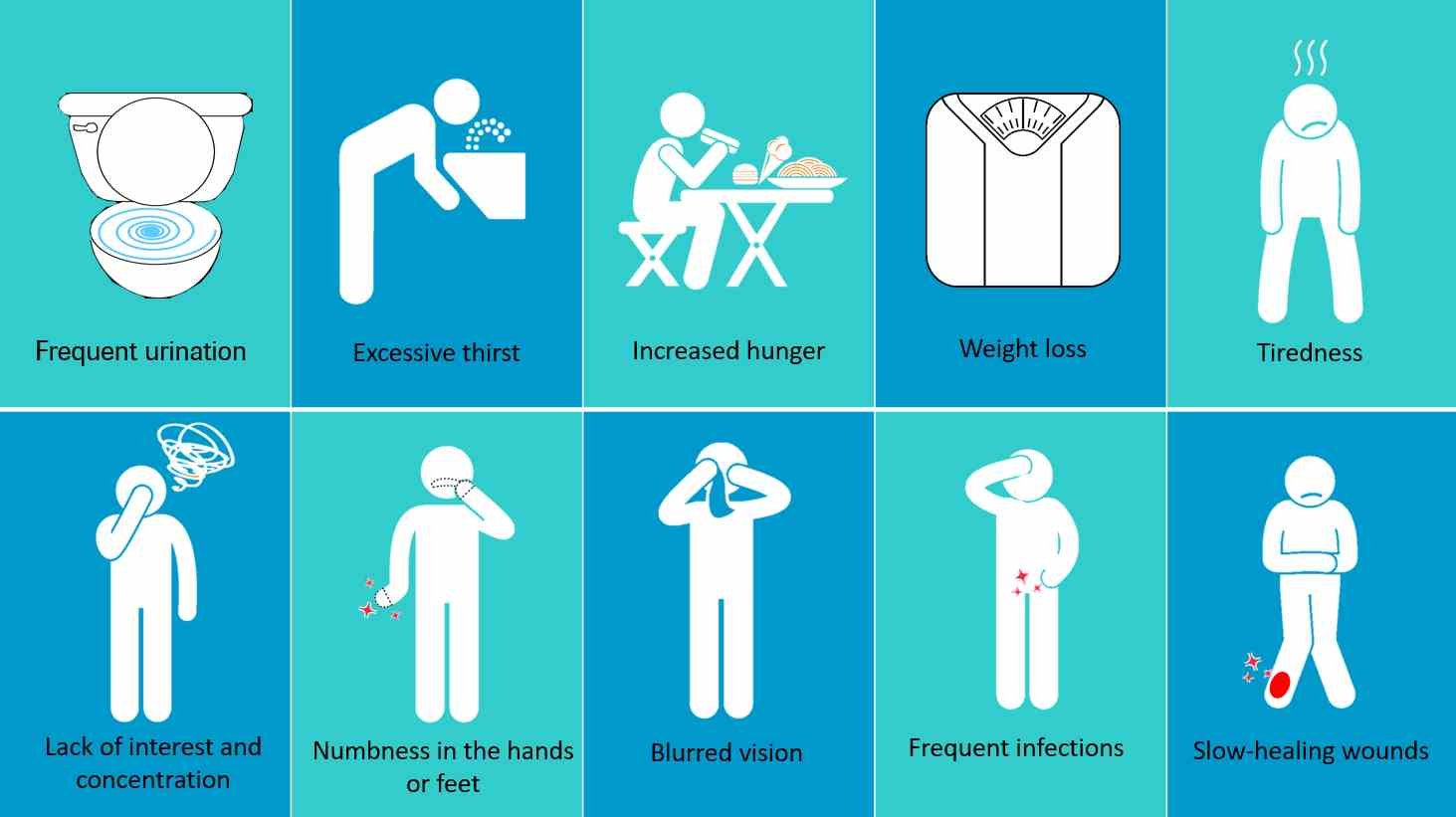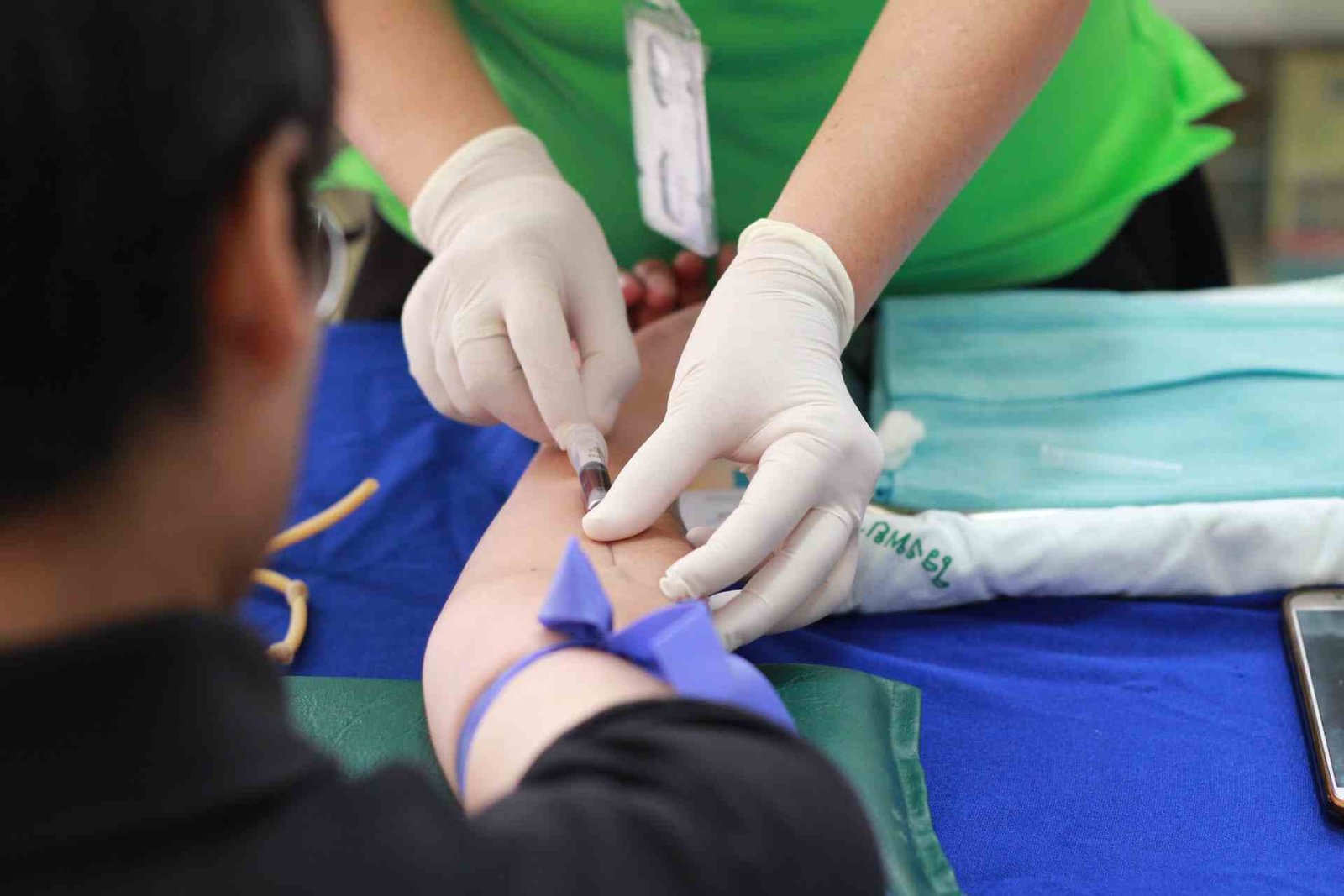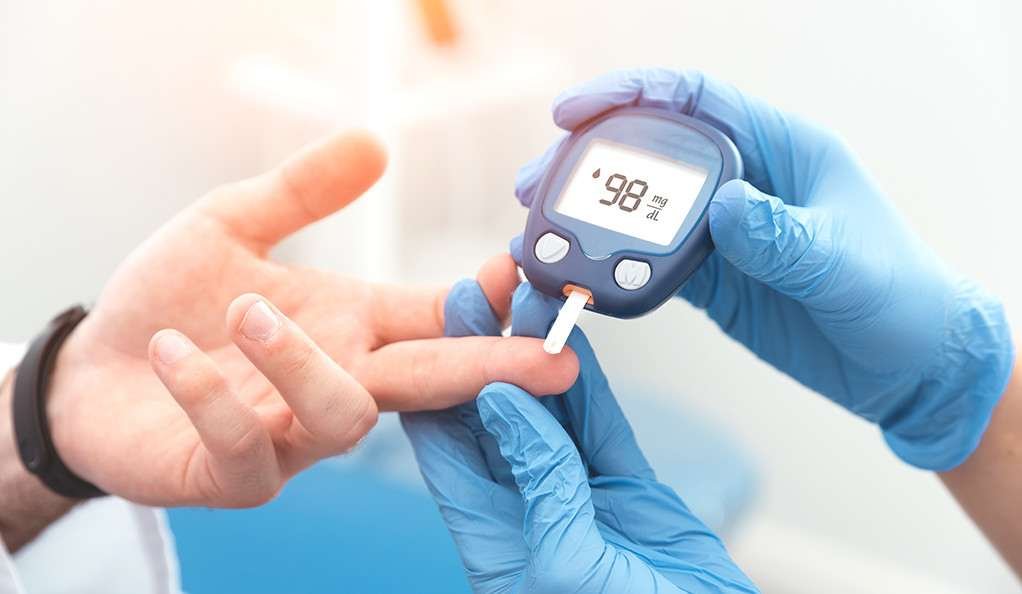Table of Contents
DIABETES
Diabetes mellitus (DM), commonly known as diabetes, is a group of metabolic disorders characterized by a high blood sugar level over a prolonged period of time. This is a disease that occurs when your body doesn’t make or use the hormone insulin properly. It causes too much blood glucose (sugar) to build up in the blood. Diabetes is a chronic disease that occurs when the pancreas is producing very low amount of insulin or no longer able to make insulin, or when the body cannot make good use of the insulin it produces.
Insulin is a hormone made by the pancreas, that acts like a key to let glucose from the food we eat pass from the bloodstream into the cells in the body to produce energy. All carbohydrate foods are broken down into glucose in the blood. Insulin helps glucose get into the cells. Not being able to produce insulin or use it effectively leads to raised glucose levels in the blood (known as hyperglycaemia). Over the long-term high glucose levels are associated with damage to the body and failure of various organs and tissues.
Diabetes prevents your body from properly absorbing energy from the food you eat. People with diabetes need to manage their disease to stay healthy. There is no cure for diabetes until now but we can look forward in the future to getting a complete cure that can vanish diabetes from root. But with treatment and lifestyle changes, you can live a long, healthy life.
How many types of diabetes are there?

Diabetes comes in different forms, depending on the cause. but there are 3 three major types of diabetes.
1. Type 1 Diabetes (Juvenile diabetes)
2. Type 2 Diabetes (Adult Diabetes)
3. Gestational Diabetes
Type 1 Diabetes
Type 1 diabetes is most commonly diagnosed in children and young adults and was once referred as Juvenile Diabetes. In type 1 diabetes, the immune system attacks and destroys the insulin-producing cells (called beta cells) in the pancreas(pancreatic islets). As a result, the body does not produce insulin. When you have type 1 diabetes, your body produces very little or no insulin, which means that you need daily insulin injections to maintain blood glucose levels under control. Approximately 5-10% of the people who have diabetes have type 1. Symptoms of type 1 diabetes often develop quickly. It’s usually diagnosed in children, teens, and young adults. Until now no one knows how to prevent or what are the preventions of type 1 diabetes. Doctors aren’t sure why this happens and the cause of type 1 diabetes is still unknown.
Treatment for type 1 diabetes involves injecting insulin into the fatty tissue just under your skin
Type 2 Diabetes
Type 2 diabetes is more common in adults and accounts for around 90% of all diabetes cases. When you have type 2 diabetes, your body does not make good use of the insulin that it produces. In this condition the pancreas makes insulin, but it either doesn’t produce enough, or the insulin doesn’t work properly.
The cornerstone of type 2 diabetes treatment is healthy lifestyle, including increased physical activity and healthy diet. Type 2 diabetes may sometimes be controlled with a combination of diet, weight management, and exercise. Type 2 diabetes is often milder than type 1. But it can still cause major health complications, especially in the tiny blood vessels in your kidneys, nerves, and eyes. Type 2 also raises your risk of heart disease and stroke. However, over the time most people with type 2 diabetes will require oral drugs and/or insulin to keep their blood glucose levels under control. Type 2 diabetes can be prevented or delayed with healthy lifestyle changes, such as losing weight, eating healthy food, and being active.
Treatment for type 2 diabetes involves keeping a healthy weight, eating right, and exercising. Some people need medication, too.
Gestational Diabetes
This type occurs in women during pregnancy when the body can become less sensitive to insulin. It is usually detected mid-way through the pregnancy at 24-28 weeks by taking a glucose test. approximately 2% to 5% of pregnant women have this form of the diabetes. Gestational diabetes is fully treatable but requires careful medical supervision throughout the pregnancy. Management may include dietary changes, blood glucose monitoring, and in some cases, insulin may be required. Gestational diabetes does not occur in all women and usually resolves after giving birth.
Out of the Box
Pre -Diabetes :
Many more people have blood sugar levels above the normal range, but not high enough to be diagnosed as having diabetes. This is sometimes known as pre-diabetes. If your blood sugar level is above the normal range, your risk of developing full-blown diabetes is increased. It’s very important for diabetes to be diagnosed as early as possible because it will get progressively worse if left untreated.
Some common symptoms of Diabetes

- extreme hunger (even though you are eating)
- increased thirst
- unintentional weight loss
- frequent urination
- blurry vision
- Tiredness
- Extreme fatigue.
- sores that are slow to heal
- Dry mouth and itchy skin
- Pain or numbness in your feet or legs
- Skin infections such as yeast infection, fungal infection e.t.c…
the symptoms of type 1 and type 2 diabetes are very common and hard to distinguish between them. But the onset of type 2 diabetes is usually slower and the symptoms are not as noticeable as those for type 1 diabetes. For these reasons, many people mistakenly overlook the warning signs. They also might think that the symptoms are the signs of other conditions, like aging, overworking, or hot weather.
You may not notice any symptoms in type 2 diabetes, so it’s important to get your blood sugar tested if you’re at risk.
Health problems that strongly related to diabetes

High blood glucose leads to many health problems such as
- Heart disease
- Stroke
- Kidney disease
- Eye problems
- Dental disease
- Nerve damage
- Foot problems
By maintaining diabetes with healthy diet or lifestyle you can be avoid such health problems that can lead to serious health consequences and also can lead to death.
Prevention

There is no known preventive measure for type 1 diabetes.& Type 2 diabetes—which accounts for 85–90% of all cases worldwide—can often be prevented or delayed by maintaining a normal body weight, engaging in physical activity, and eating a healthy diet. Higher levels of physical activity (more than 90 minutes per day) reduce the risk of diabetes by 28%. Tobacco smoking is also associated with an increased risk of diabetes and its complications, so smoking cessation can be an important preventive measure as well.
Risk Factors that can lead you to Diabetes

Risk factors For type 1 Diabetes
Your risk for type 1 diabetes increases if :
- You’re more likely to get type 1 diabetes if you have a parent or sibling with the condition, or you carry certain genes that are linked to the disease.
- Circumstances such as exposure to a viral illness likely play some role in type 1 diabetes.
- Sometimes family members of people with type 1 diabetes are tested for the presence of diabetes auto If you have these autoantibodies, you have an increased risk of developing type 1 diabetes. But not everyone who has these autoantibodies develops diabetes.
- Certain countries, such as Finland and Sweden, have higher rates of type 1 diabetes.
Risk factors For type 2 diabetes
your risk for type 2 diabetes increases if you:
- Obese/Overweight
- are age 45 or older
- have a parent or sibling with the condition
- aren’t physically active
- have had gestational diabetes
- have pre-diabetes
- have high blood pressure, high cholesterol, or high triglycerides
Risk factors for Gestational diabetes
Your risk for gestational diabetes increases if you:
- are overweight
- are over age 25
- had gestational diabetes during a past pregnancy
- have given birth to a baby weighing more than 9 pounds
- have a family history of type 2 diabetes
- have polycystic ovary syndrome (PCOS)
How do I know if I have diabetes?

- Many people are unaware that they have diabetes, especially in its early stages when symptoms may not be present.
- There is no definite way to know if you have diabetes without undergoing blood tests to determine your blood glucose levels (see the section on Diagnosis of diabetes).
- See your doctor if you have symptoms of diabetes or if you are concerned about your diabetes risk.
Conclusion
As diabetes continues to spread worldwide, it is essential that an effective approach is adopted for its prevention and treatment. Neither current mainstream recommendations nor the available medication treats the condition successfully.
Though it”s our responsibility to take care of ourselves and our loved ones.







